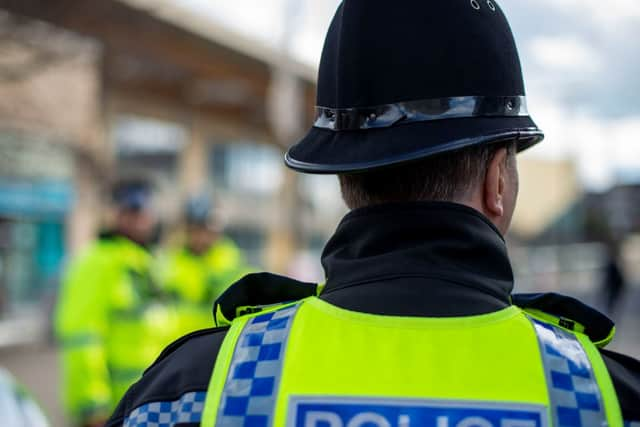Number of child sexual abuse images in North East increases by 67% from 2017
and live on Freeview channel 276
The number of child sexual abuse images recorded by police in the North East has seen a 68% increase over the past five years.
According to police data collected by NSPCC, 1053 offences where child abuse images were collected and distributed were logged by Northumbria Police in 2022/23- a figure which is up 68% since 2017/18.
The number is a 17% increase on 2021/22.
Advertisement
Hide AdAdvertisement
Hide AdThe children's charity is calling for action by tech companies to address what is happening on their platforms after the data revealed widespread use of social media and messaging apps in child sexual abuse crimes. The NSPCC say this results from a failure to design child safety into products.


More than 33,000 offences were logged nationwide last year and where police disclosed the site involved, Snapchat was flagged in almost half of instance (44%.)
Meta-owned sites (Facebook, Instagram and Whatsapp) were flagged more than 2,500 times making up a quarter of known instances.
A 14-year-old girl told the NSPCC-run service: “One night I got chatting with this guy online who I’d never met and he made me feel so good about myself. He told me he was 15, even though deep down I didn’t believe him.
Advertisement
Hide AdAdvertisement
Hide Ad"I sent him a couple of semi-nudes on Snap(chat), but then instantly regretted it. I asked him to delete the pics, but he just kept on making me do stuff for him not to post them – like getting me to strip live on camera. I just want to block him, but if I block him he will just post the pictures.”
Read the latest news in your inbox with a Shields Gazette newsletter NSPCC said that disrupting online child sexual abuse taking place at increasing levels will require regulated tech platforms to introduce systematic changes to their products to stop them being used to organise, commit and share child abuse.


The charity said companies should be required to use technology that can help identify and tackle grooming, sextortion and new child abuse images.
They also want tougher measures for private messaging services to make child protection a priority, including in end-to-end encrypted environments.
Advertisement
Hide AdAdvertisement
Hide AdSir Peter Wanless, NSPCC Chief Executive, said: “It’s alarming to see online child abuse continue to rise, especially when tech companies should be acting to make their sites safe by design ahead of incoming regulation.
“Behind these crimes are children who have been targeted by adults who are able to organise and share sexual abuse with other offenders seamlessly across social media and messaging apps."
A consultation into Ofcom's first codes for companies to adopt to disrupt child sexual abuse on their platforms closed last week and the NSPCC want these measures introduced without delay. It also wants Ofcom to begin work on a second version that will require companies to go much further.
“The Online Safety Act sets out robust measures to make children fundamentally safer on the sites and apps they use so they can enjoy the benefits of a healthy online experience," continued Sir Peter Wanless.
Advertisement
Hide AdAdvertisement
Hide Ad“Ofcom has been quick off the blocks but must act with greater ambition to ensure companies prioritise child safety in the comprehensive way that is so desperately needed.”
Susie Hargreaves OBE, Chief Executive of the Internet Watch Foundation, the UK’s front line against child sexual abuse imagery online, said: “This is a truly disturbing picture, and a reflection of the growing scale of the availability, and demand, for images and videos of children suffering sexual abuse.
“The people viewing and sharing and distributing this material need to know it is not a victimless crime. They are real children, suffering real abuse and sexual torture, the effects of which can linger a lifetime.
“That more and more people are trying to share and spread this material shows we should all be doing everything we can to stop this, building more, and innovative solutions to keep children safe. The IWF is ready to support technology companies and Ofcom in implementing the Online Safety Act to help make the UK the safest place in the world to be online.”